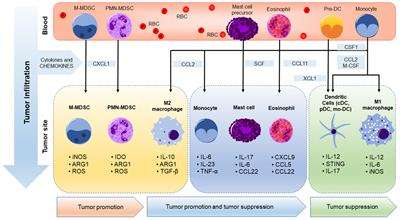Not sure if anyone is following this thread at the moment, but I have some helpful information.
Laws governing professional counseling practices vary wildly due to politics amongst the mental health professions – psychology, social work, and psychiatry. Insurance companies play a role as well. Just an FYI. CACREP is the governing body for counseling program accreditation. They have a detailed document on what they consider to be the scope of practice for counselors.
CACREP accredits degree programs in mental health counseling, school counseling, marriage and family therapy, college counseling, vocational counseling, and substance abuse counseling. These fields came out of several movements in US history, including the moral treatment movement, vocational guidance in response to The Great Depression, World War II veterans, Alcoholics Anonymous, school counseling programs during the Cold War, Vietnam, psychotropic medication and deinstitutionalization, and the implementation of community mental health centers.
The counseling profession identifies as one that views people through a developmental and strengths-based model. Counselors are expected to have multicultural competency and accept people without judgment of all creeds, gender identity, sexual orientation, social classes, etc. Social justice work is considered an aspect of counseling.
Professional organizations for counseling are as follows:
American Counseling Association
Your state counseling association
Your counseling association within your state
Further, there are the specialties and the state specialty association. Your state may also have associations unaffiliated with the counseling associations but are related to other credentials. National associations have these as well, such as the psychodrama folks.
There are a few different exams in order to receive a full license. Different states require different exams. The broadest is the National Counselor Examination. There are exams for the specialties. You may or may not need to take those.
The state licensure board is who ultimately determines your legal scope of practice – whether or not you can practice therapy at all or with supervision, what testing you can administer, who can supervise you, etc. Your state licensure board may not even have counselors on it. Delightful, no? Check your state’s health professional licensing website for documentation and applications. You will also want to check the licensure organization specific to the license you wish to get.
Licensure gets very weird. In my state, a school counselor can obtain a license to practice therapy despite having little to no therapy training. Also, people who attend programs that aren’t accredited can also obtain a license. However, this would not mean you would be able to get a job with a mental health agency, be accepted onto insurance panels, be allowed to office at a group practice, or even have people who want to pay to talk to you. Additionally, you will not be able to move to another state and be able to practice – you would need to complete a degree program within the state you moved to and there’s a huge chance it would need to be accredited. Go to a CACREP accredited program.
On school counselors – see if you can speak with a currently practicing school counselor before you apply to a school counseling program. In my state, school counselors have been reduced to schedulers and very little counseling is done. It is farmed out to bachelor level psychologists who have no licensure requirements. You may end up being the counselor for a whole school district versus one school within a district.
The reason why many states require a teaching license for school counselors is so they can have the counselor teach classes (sometimes even on top of their counseling workload) if they need a teacher.
Oh, and school counselor pay can be really terrible.
If you want to switch from school counseling to mental health counseling, you will likely need to complete a new degree program unless your state is funky like mine. You may or may not be a shoe-in for a mental health counseling program. On one hand, you’d have excellent human services experience. On the other, it’s a 180 on professional identity and some departments aren’t OK with switches like that. See if you can talk with admissions before spending money and writing that essay to get a feel for their stance on things like that.
There are many opportunities to council children, adolescents, and families with a mental health counseling license. Private practice, adolescent hospitalization units, and community mental health agencies all employ mental health counselors who specialize in pediatrics. Make friends with your area pediatricians, pediatric psychiatrists, and pediatric neurologists to help bring in referrals if you do private practice.
If you have any questions, your state counseling association can be a great resource. CACREP is also very responsive if you have questions on studies and shoot them an e-mail.
My best advice for selecting a program is seeing how closely they adhere to CACREP guidelines, if the instructors have similar therapeutic interests to you, how well students do on the licensure exam, and what sort of work you may find yourself doing after graduation. If you are interested in research, also see what research opportunities are available.
I know there are some programs out there at prestigious schools, but that doesn’t necessarily mean anything. The accredited programs in my state are in run-of-the-mill state schools, but a lot of the faculty are high up in the counseling world. Clients don’t particularly care whether or not you went to an Ivy League equivalent school, they really just want you to listen to them. Save yourself the debt. It takes a lot of time to start making money in therapy regardless of discipline, and you need whatever leg up you can get financially.
That’s all I can think of at the moment. I’m in a CACREP mental health counseling program, and I recently took a class that addressed licensure and professional identity. I’m also fairly close to graduating, so I’ve been trying to study up on state law.
Hope that helps.
Hi everyone!
I am currently a 29/f private lesson music teacher looking to make a career change into school counseling. I’ve been thinking about doing it for a while now, but my husband and I decided to take turns changing our careers (he just switched from teaching to coding). Now it’s my turn!
I have a couple questions:
-
What is the difference between being a school counselor vs. psychologist? Do school counselors help with the mental health of a student, or is that strictly a job for the school psychologist? The school counselors I’ve met here (TX) are mostly are responsible for making the schedules.
-
Since my experience is as a private voice teacher within several school districts, will counseling programs view this as valuable experience? I know it’s not licensed teaching experience, but I have been teaching in-class lessons one-on-one with high schoolers for 5 years. I am familiar with classroom management, as well as the difficulties associated with student schedules and parent-teacher situations. I have heard a lot of people don’t have luck getting a job after a program because they were never a teacher (my sister has a School Counseling degree and was never hired because of that).
My passion truly is for helping the kids, and that’s why I’ve stuck with the career I have for so long. Most of my lessons end up being mini life-coaching sessions, and I love that I can help these kids grow in confidence and in self-worth. I am currently in TX, but would be seeking licensure outside of the state since my husband and I plan to move in about 1-2 years (also, TX requires 2 years of classroom teaching, which I do not have!)
Thanks in advance for all the advice and all the help! I really appreciate it.
I’m considering School Psychology and I keep seeing it compared to School Counseling (although I have read a couple times that the role of a School Psychologist is actually similar to that of a Speech Language Pathologist, save the lack of performing therapy). I have researched a bit and I understand (somewhat) the unique duties of the roles (which I have listed below; please feel free to confirm or deny any of the duties I listed for either and/or suggest additional duties I didn’t mention), and I can’t seem to decide what I like more! I’m scared of the more intense and potentially negative emotional atmosphere within School Counseling, but I feel like I might enjoy counseling as long as it isn’t always “heavy”. But I also don’t necessarily want to write long reports often (I know, I will have to deal with it if I want to be a School Psychologist, hahaha); I know that is a huge part of the role of a School Psychologist. So, why do you love School Psychology (if you do – I surely hope you do!), and what made you choose it over School Counseling? Oh, and can you work as a School Counselor (since I’ve seen it said a few times that School Psychologists could do everything a School Counselor can – how true is this)?
School Counseling – individual counseling (crisis intervention, recurring individual sessions, career and college counseling for secondary students), small group counseling, classroom-based counseling (classroom education on topics such as socioemotional well-being and academics), school-wide programming (classroom education, setting up things like a “kindness week”, etc.), meeting with parents to discuss issues, phone calls with parents, scheduling classes (for secondary students)
School Psychology – Administering and interpreting cognitive tests to determine special education accommodation eligibility (such as IEP and 504), writing reports discussing eligibility findings and data, phone calls with parents and preparing them for potentially “bad” news, dealing with lawyers should a case require it, attending meetings with relevant parties, preparing and discussing RTI with teachers, dealing with the more critical crises (in a mixed role)




